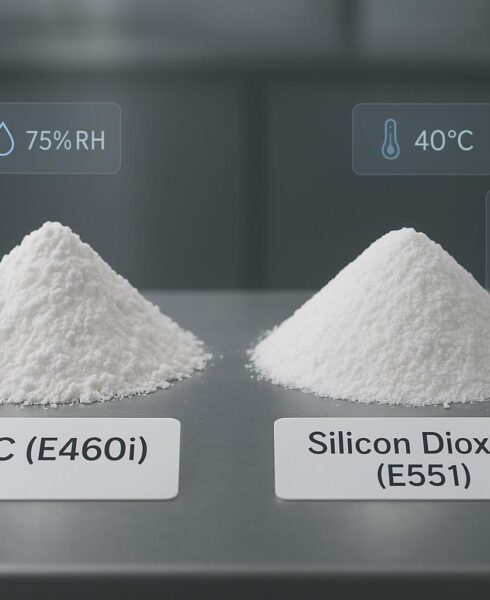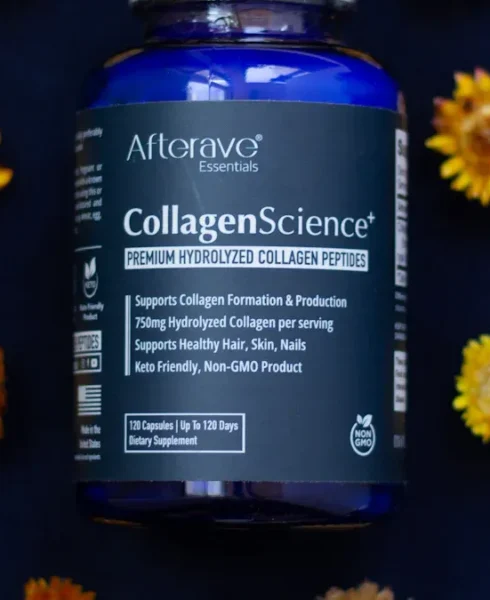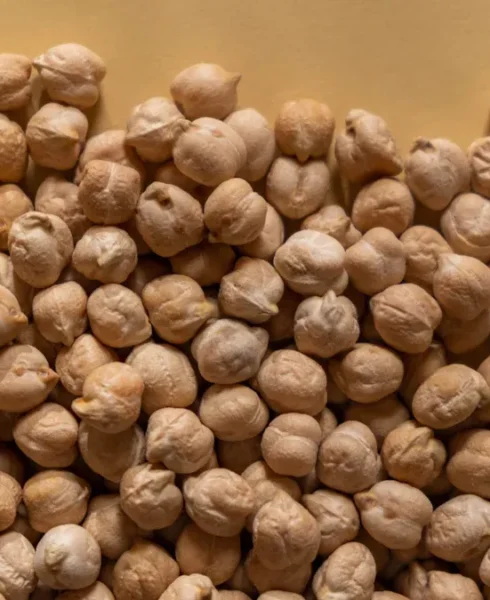You want to choose the best protein for your needs. Sodium Caseinate helps muscles grow and makes food feel better. Plant-based proteins are good for vegans and people with dairy allergies. The table below shows how these proteins are different in digestibility, allergenicity, nutrition, and versatility.
Feature | Sodium Caseinate | Plant-Based Proteins |
|---|---|---|
Digestibility | High | Moderate to High |
Allergenicity | Dairy allergen | Low (varies) |
Nutritional Value | Complete | Varies |
Application Versatility | Excellent | Good |
Key Takeaways
Sodium caseinate is a complete protein. It digests easily. It helps you build muscles fast. Plant-based proteins are good for vegans. They are also good for people with dairy allergies. They give extra fiber. They help your heart stay healthy. Always check food labels closely. This helps you avoid allergens. It is important if you have milk allergies. It also matters if you want vegan foods. Sodium caseinate is good in creamy foods. It keeps foods stable. Plant proteins get better with processing. They mix well in vegan recipes. Plant proteins usually cost less. They are better for the environment. You may need to mix plant proteins. This gives you full nutrition.
Quick Comparison
Key Differences
You might ask how Sodium Caseinate and plant-based proteins are different. Both have special features that can change your health and food choices.
Sodium Caseinate is a complete protein. It has all nine important amino acids. It also has a high PDCAAS score. This means your body can use it very well.
Most plant-based proteins do not have every essential amino acid. Soy and quinoa are not like the others. You may need to mix plant proteins to get all the amino acids.
Plant proteins are harder to digest. Fiber and other plant parts slow down digestion. Cooking and soaking can help your body use these proteins better.
Sodium Caseinate digests faster than soy or pea protein. Animal proteins break down more easily in your stomach.
Plant proteins give extra health benefits. They have fiber, isoflavones, and healthy fats. These nutrients help lower your risk of heart disease and diabetes.
Plant-based proteins do not have cholesterol or lactose. This makes them good for people with dairy allergies or who avoid animal foods.
Sodium Caseinate is used in many foods. It helps make food smooth and stable. Plant proteins also add value but may need extra nutrients to match dairy proteins.
Tip: If you want all amino acids and easy digestion, Sodium Caseinate is a good pick. If you want more fiber or a vegan choice, plant-based proteins are better.
Best Uses
Pick your protein based on your needs.
For muscle growth and recovery, Sodium Caseinate is helpful. Athletes often use it in supplements.
If you eat a vegan or vegetarian diet, plant-based proteins are best. You can mix pea and rice protein for better nutrition.
In foods, Sodium Caseinate helps make things creamy and stable. Plant proteins work well in dairy-free foods and baked goods.
If you have allergies or want less cholesterol, plant-based proteins are safer.
Nutrition

Amino Acid Profile
A complete protein gives you all nine essential amino acids. Sodium Caseinate is an animal protein. It has lots of these amino acids. It has high amounts of histidine, methionine, phenylalanine, and valine. These help your muscles grow and heal.
Plant-based proteins like pea and soy also have all the essential amino acids. Soy protein is most like milk protein. Pea protein is similar to whey. It has lots of leucine and BCAAs. But pea and soy have less methionine than animal proteins. Other plant proteins, like rice or hemp, do not have enough of some amino acids. You may need to mix plant proteins to get a complete set.
Note: Animal proteins like Sodium Caseinate have the most essential amino acids. Soy and pea are good plant-based choices. Check their amino acid levels before picking.
Digestibility
Digestibility means how well your body uses protein. Scientists use PDCAAS to measure this. A higher score means your body uses the protein better.
Here is a table with PDCAAS values for popular proteins:
Protein Source | PDCAAS Value (approx.) | Limiting Amino Acid | Notes |
|---|---|---|---|
Sodium Caseinate | ~1.0 | Tryptophan | High digestibility, complete amino acid profile |
Whey Protein | ~1.0 | Tryptophan | Very high digestibility |
Soy Protein | 1.0 | N/A | Complete plant protein |
Pea Protein | 0.82 | Tryptophan | Good digestibility, lower than animal proteins |
Black Beans | 0.75 | Tryptophan | Lower digestibility |
Hemp Seeds (Whole) | 0.49 – 0.53 | Tryptophan | Low digestibility |
Hemp Seeds (Dehulled) | 0.63 – 0.66 | Tryptophan | Slightly higher after processing |
Rice Protein Concentrate | <0.75 | Tryptophan | Lower digestibility |

Sodium Caseinate and soy protein have the highest PDCAAS scores. Your body uses them very well. Pea protein is good but not as high as animal proteins. Other plant proteins, like hemp and rice, have much lower scores. Processing can help make them easier to digest. But it might lower the amount of useful amino acids.
Tip: For the easiest protein to digest, pick animal proteins or soy. Pea protein is a good plant choice. You may need to eat more to get the same benefit.
Allergenicity
You should check for allergens when choosing a protein. Sodium Caseinate comes from milk. It has casein, which is a common allergen. People with milk allergies must not eat Sodium Caseinate. Sometimes, foods called “non-dairy” or “vegetarian” still have sodium caseinate. Always read labels carefully.
Plant-based proteins usually have fewer allergens. Soy protein can cause allergies in some people, especially kids. Most other plant proteins, like pea, rice, or hemp, rarely cause allergies. If you have a milk allergy, plant-based proteins are safer.
Casein is the main protein in milk and can cause allergies.
People allergic to casein must check food labels for sodium caseinate.
Sodium caseinate can be in foods labeled “non-dairy” or “vegetarian.”
Milk protein allergies are common in kids and can be serious in adults.
Sodium caseinate comes from cow’s milk. It is not good for people with dairy allergies or vegan diets.
Alert: If you have a milk allergy, do not eat Sodium Caseinate. Pick plant-based proteins for safety.
Functional Properties
Solubility
It is important to know how proteins dissolve in water. This helps you understand how they work in foods. Sodium caseinate dissolves well in water when the pH is neutral. It helps mix things together and keeps food steady, even when heated. Its ability to dissolve drops near its isoelectric point. Heat and alkaline conditions can make it dissolve better again. Plant-based proteins like pea protein do not dissolve as easily. You often need special treatments to help them dissolve. These treatments include alkalization or ultrasonication. Mixing pea protein with sodium caseinate makes mixtures more stable and helps them spread out better.
Here is a table that shows how these proteins act:
Property/Condition | Sodium Caseinate Behavior | Notes |
|---|---|---|
Solubility | Very soluble in water except near pH ~4 | Measured by Bradford and absorbency methods |
Molecular flexibility | Flexible structure makes stable mixtures and emulsions | Changes with heat and pH treatments |
Heat stability | Very stable at neutral pH (6.5) | Heat near pI helps emulsifying activity |
Tip: If you want a protein that mixes well and stays steady, pick one with high solubility and flexibility.
Emulsification
Proteins help mix oil and water in foods like creams and sauces. Sodium caseinate is a good emulsifier. It keeps fat droplets apart and makes dairy products smooth. Its surface-active parts move fast to the oil-water edge. They form a strong layer that stops droplets from joining. Near its isoelectric point, mixtures can break down. New methods like adding colloidal lignin particles make mixtures more stable, even in sour foods.
Plant-based proteins also have good emulsifying power. They can make antioxidant Pickering emulsions. These stay steady in many food types. Scientists use plant protein-anthocyanin nanoparticles to make these mixtures stronger and more useful.
Sodium caseinate is used in many foods for its strong mixing and stabilizing abilities.
Plant proteins can work as emulsifiers, especially when processed or mixed with other things.
Texture
Texture makes food fun to eat. Proteins can change texture in different ways. Plant-based proteins use physical processing to make fibrous, meat-like shapes. High-moisture extrusion helps create these textures. How you control moisture, heat, and pressure changes how firm or springy food feels.
Sodium caseinate changes texture through enzymatic hydrolysis. This process changes its structure and makes foams and mixtures more stable. Too much hydrolysis can make mixtures weak and less steady. Plant proteins often need unfolding or changes to improve their texture. They use physical changes more than chemical ones.
Note: You can get different textures by picking the right protein and processing method. Animal proteins often make food smoother and creamier. Plant proteins can copy meat textures with special techniques.
Applications

Sodium Caseinate in Foods
Sodium caseinate is used in lots of foods. It helps make food smooth and stable. It also adds nutrition. Food makers like it because it can mix oil and water, make foams, thicken, and gel. You find sodium caseinate in dairy and non-dairy foods. Here are some foods that use sodium caseinate:
Ice cream: It keeps ice cream soft and stops ice from forming.
Sausages and meat: It helps fat mix and holds meat together.
Bread and cereal: It makes dough stretchy and keeps bread fresh.
Coffee creamers: It adds protein and helps creamer blend with coffee.
Cheese and spreads: It makes them smooth and helps them melt.
Margarine, chocolate, whipped toppings, and desserts: It helps mix and keep things steady.
Sodium caseinate is also in gluten-free foods. It can be used instead of meat glue in processed meats. It helps stick proteins together and makes food juicy. The food industry likes sodium caseinate because it makes food taste better and last longer. More people are buying sodium caseinate, especially for dairy, bakery, and nutrition foods.
Tip: If you have a milk allergy, always check food labels. Sodium caseinate can be in foods called “non-dairy.”
Plant-Based Proteins in Foods
Plant-based proteins are in more foods now. Food makers use them because they work in many recipes. They are good for people who want vegan or vegetarian choices. Soy and pea proteins are popular. They hold water, make gels, soak up fat, and mix oil and water. You find plant proteins in:
Plant burgers, sausages, and nuggets: They make food feel like meat and keep it moist.
Dairy-free milks, yogurts, and cheeses: They help make creamy and steady foods.
Baked goods: They add protein and help food hold its shape.
Protein bars and snacks: They give more nutrition and help stick things together.
Gluten-free foods: They replace wheat protein and make food feel better.
Other plant proteins like lentil, chickpea, mung bean, and fava bean are getting more popular. Food makers use new ways to make plant foods taste and feel better. These ways include extrusion and 3D printing. Better protein extraction and processing help remove bad tastes.
Note: Plant-based proteins are good for the planet. They fit vegan, vegetarian, and flexitarian diets.
Supplements
You find sodium caseinate and plant proteins in many supplements. These help you build muscle, recover after exercise, or get more protein. Here is a table that shows the main types and who uses them:
Supplement Type | Main Protein Source | Target Users | Key Benefits |
|---|---|---|---|
Protein powders | Sodium caseinate, soy, pea | Athletes, bodybuilders, lifestyle users | Muscle growth, recovery, easy mixing |
Nutritional bars | Sodium caseinate, pea, soy | Busy adults, teens, fitness fans | Portable, high-protein, filling |
High-protein drinks | Sodium caseinate, soy, blends | Athletes, busy professionals | Quick nutrition, sustained energy |
Ready-to-drink shakes | Plant-based blends, caseinate | Millennials, Gen Z, health seekers | Convenience, clean-label, vegan option |
Sodium caseinate is in sports nutrition because it digests slowly. It helps muscles recover, especially at night. Plant-based supplements are getting more popular. People pick them for health, ethics, or allergies. Some brands mix dairy and plant proteins for better nutrition. Young people like clear labels and easy products.
Tip: Pick a supplement that fits your diet and taste. Sodium caseinate is good for slow digestion. Plant proteins are best for vegan or dairy-free needs.
Dietary Suitability
Allergies
It is important to think about allergies when picking protein. Sodium Caseinate is made from milk, so it has dairy proteins. If you cannot have milk or are lactose intolerant, do not eat it. Plant-based proteins like soy, pea, or rice do not have dairy. These are good for people who cannot eat milk foods. Most plant proteins are also gluten-free. But you should check the label. Some products might get gluten during making. If you have celiac disease or gluten problems, look for “gluten-free” on the package.
Tip: Always check the ingredient list and allergy warnings before buying protein.
Vegan and Vegetarian
Some people eat vegan or vegetarian diets. Plant-based proteins are good for these diets. They come from plants like soy, pea, and rice. These proteins give you nutrients and enough protein. Many plant drinks, like soy, have extra vitamins and minerals. These include A, B12, D, calcium, iodine, and zinc. Adding these helps you get what you need from plants. Sodium Caseinate is not for vegans because it is from milk. Vegetarians who eat dairy can use it, but vegans should pick plant proteins.
Plant-based proteins are good for vegan and vegetarian diets.
Soy drinks often have more protein and added vitamins.
Fortified plant drinks help you get enough nutrition.
Sustainability
You may want to help the planet when you pick protein. Plant-based proteins use less water and land than animal proteins. Growing plants for protein makes less pollution. Choosing plant proteins lowers your carbon footprint. Sodium Caseinate comes from dairy farms, which use more energy and water. If you want to help the earth, plant-based proteins are better.
🌱 Picking plant-based proteins is better for the planet and fits many diets.
Taste and Acceptance
Flavor
You may notice that flavor plays a big role when you pick a protein. Plant-based proteins often have strong tastes that some people do not like. These proteins can taste green, earthy, or even like beans. These flavors come from natural changes in the protein, such as oxidation. When plant proteins break down, they form new compounds that can taste bitter or strange. Soy, pea, and other legume proteins show these flavors the most.
Food makers use special methods to make plant proteins taste better. Fermentation with lactic acid bacteria or yeast can help. This process reduces the green and earthy notes. It can also add pleasant tastes like umami, which makes food taste richer. Fermentation changes the way proteins react with other parts of food, so you get fewer off-flavors. Animal-based proteins, like casein, usually do not have these flavor problems. They taste mild and blend well into many foods.
Tip: If you want a protein with a neutral taste, animal-based options often work best. Plant proteins may need extra steps to taste good.
Consumer Trends
You see more people looking for high-quality protein in their foods. Many choose animal-based proteins for their smooth taste and strong functional properties. These proteins help foods stay creamy, thick, and stable. They also work well in drinks and snacks that need extra protein.
Plant-based diets are growing fast. More people want dairy-free and vegan options. This trend increases the demand for plant proteins. Even so, animal-based proteins still play a big part in making dairy alternatives taste and feel better. Food companies now mix both types to create new products. These blends give you better nutrition and texture.
People want foods that are healthy and easy to use.
The fitness world likes slow-digesting proteins for muscle growth and recovery.
New technology helps make proteins more useful in many foods.
Companies work together to make plant-based foods taste and feel like dairy.
🌱 You have more choices than ever. Try different proteins to find what fits your taste and needs.
Cost and Sourcing
Price
Protein prices can change a lot. Dairy-based proteins usually cost more. Their price depends on the dairy market. If milk prices go up, so do protein costs. This makes prices less steady for food makers. In early 2025, dairy protein prices went up by 5%. North America often has higher prices. This is because of shipping and quality rules. In Asia-Pacific, prices are usually lower.
Plant-based proteins, like pea protein isolate, have steadier prices. They do not depend on the dairy market. Their costs do not change as much. Many food companies use plant proteins to save money. These proteins help avoid big price changes. You may see more plant proteins in foods. They help keep costs low for companies.
Here is a table to compare:
Aspect | Dairy-Based Proteins | Plant-Based Proteins (e.g., Pea Protein Isolate) |
|---|---|---|
Price Trend | Fluctuates; 5% increase in Q1 2025 | Stable, less affected by dairy market |
Price Drivers | Milk prices, energy, transport | Cost-effective, not tied to dairy |
Regional Price Differences | Higher in North America, lower in Asia | Generally stable across regions |
Market Impact | Linked to dairy market changes | Growing use due to stable pricing |
Many things change protein costs. Milk prices are important for dairy proteins. Processing fees and government rules also matter. Demand from food companies can raise prices. If more people want protein foods, prices might go up. New technology may help keep plant protein prices steady.
Labeling
You should always check the label when buying protein. In the US, “non-dairy” products with milk protein must say so. The label will list “caseinate (a milk derivative)” in the ingredients. This helps people with milk allergies stay safe.
Plant-based proteins have other labeling rules. In the US and Europe, vegan or vegetarian labels are common. These include the Certified Vegan logo or the V-Label. These show the product has no animal ingredients. Plant proteins do not need dairy warnings. But they must list all ingredients and any allergens.
Tip: Always read the ingredient list and look for allergy or vegan labels. This helps you pick the best protein for you.
Pick your protein by thinking about what you want. Sodium Caseinate is easy to digest and does not have much taste. It is good for building muscles and for special medical diets. Plant-based proteins are best for people who do not eat animal foods. They also cost less, but you might need to mix different kinds to get all the nutrients you need. Processing can make plant proteins taste better and easier to use. Look at the table below for a simple guide:
Decision Point | Sodium Caseinate | Plant-Based Proteins |
|---|---|---|
Nutrition | High bioavailability | May need mixing sources |
Functionality | Superior texture, mixing | Variable, improves with processing |
Dietary Needs | Not for milk allergies | Vegan, allergen-friendly |
Taste | Neutral | Bland or off-flavor |
Cost | Price changes often | More stable, cost-effective |
🌱 Choose Sodium Caseinate if you want strong muscles and smooth food. Pick plant-based proteins if you are vegan, have allergies, or want to save money.
FAQ
Can you use sodium caseinate if you are lactose intolerant?
Most people with lactose intolerance can use sodium caseinate. It has only a tiny bit of lactose. If you have a milk allergy, do not use it. Always read the label to be sure it is safe.
Do plant-based proteins help build muscle as well as sodium caseinate?
Plant-based proteins can help you build muscle too. You might need to mix different plant proteins to get all the important amino acids. Sodium caseinate gives you all the amino acids in one protein.
Are plant-based proteins always non-GMO?
Some plant-based proteins are non-GMO, but not all of them. If you care about this, look for a non-GMO label on the package. Many brands sell both GMO and non-GMO types.
Is sodium caseinate safe for children?
Sodium caseinate is safe for most kids who are not allergic to milk. It gives them good protein for growing. If your child has a milk allergy, pick plant-based proteins instead.







